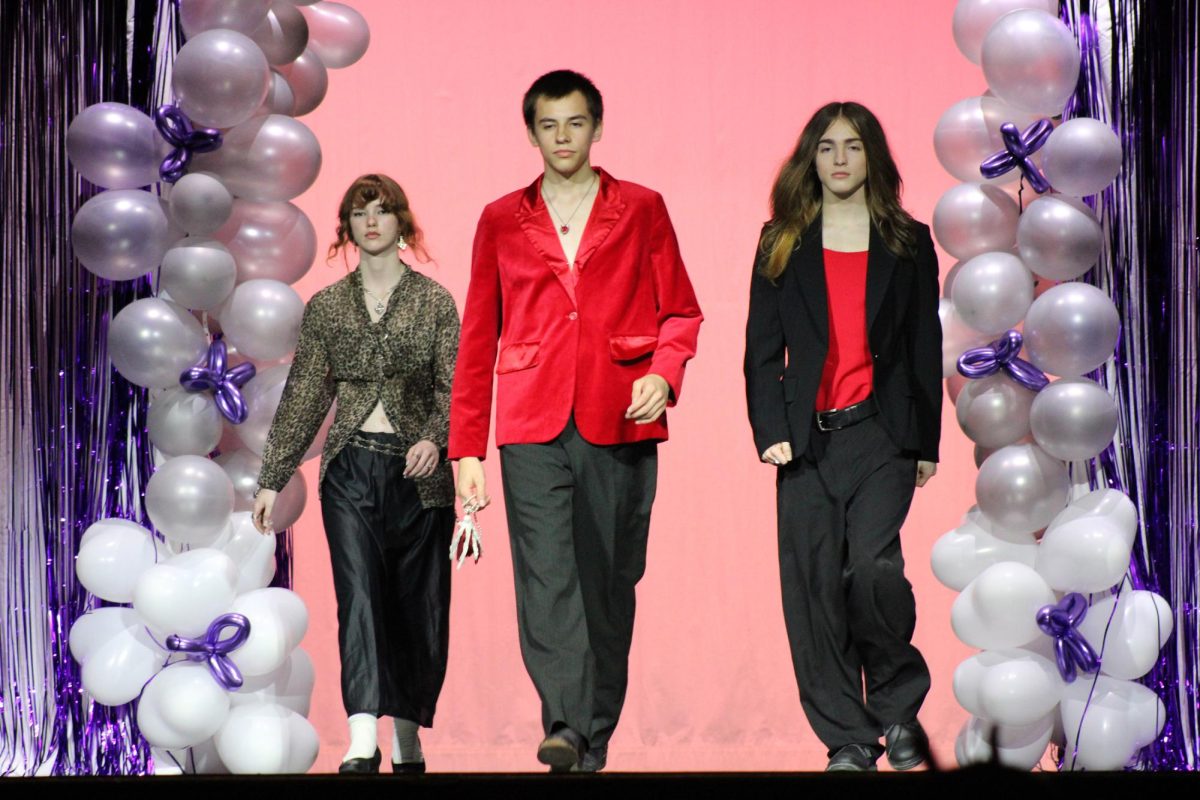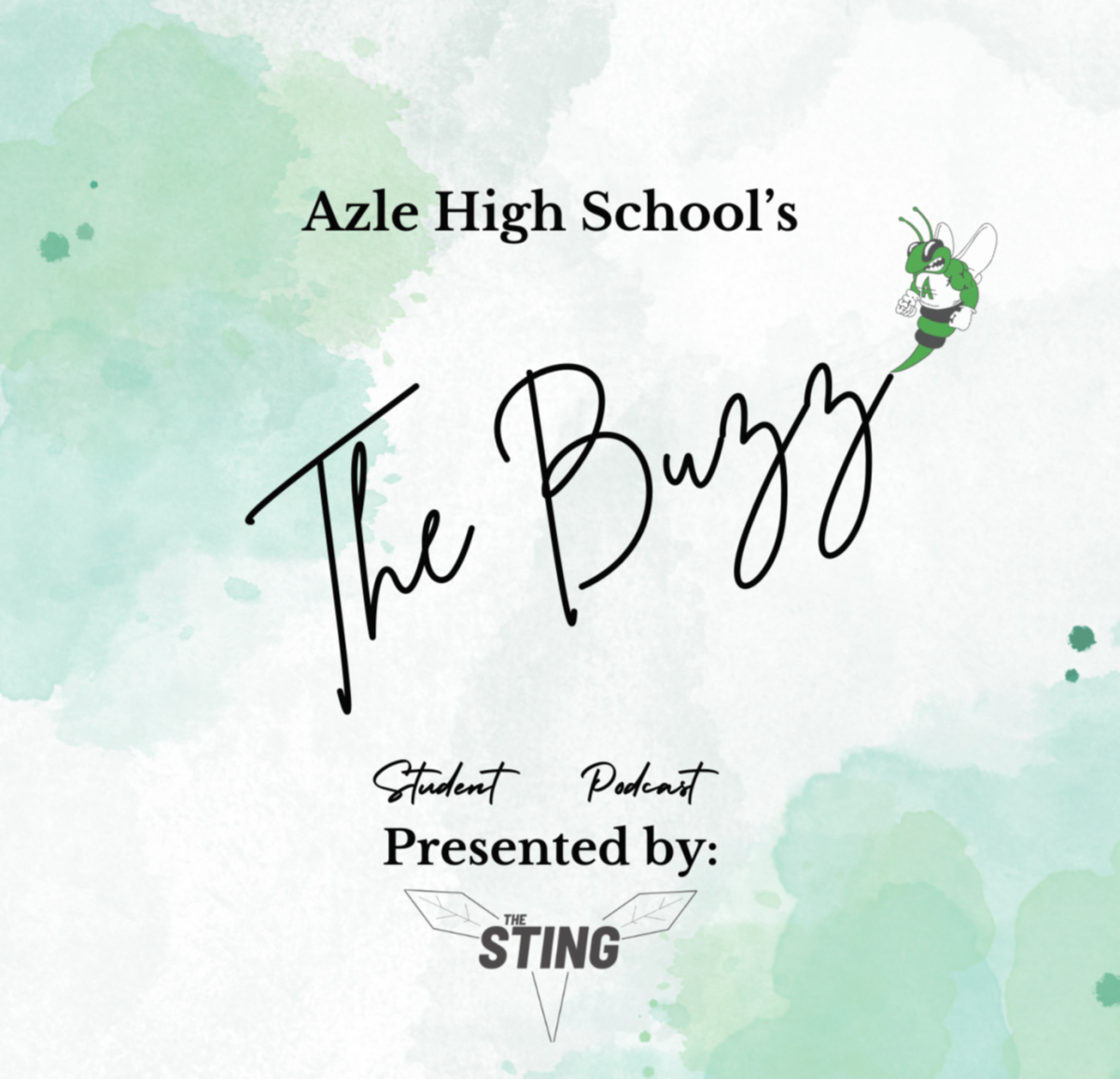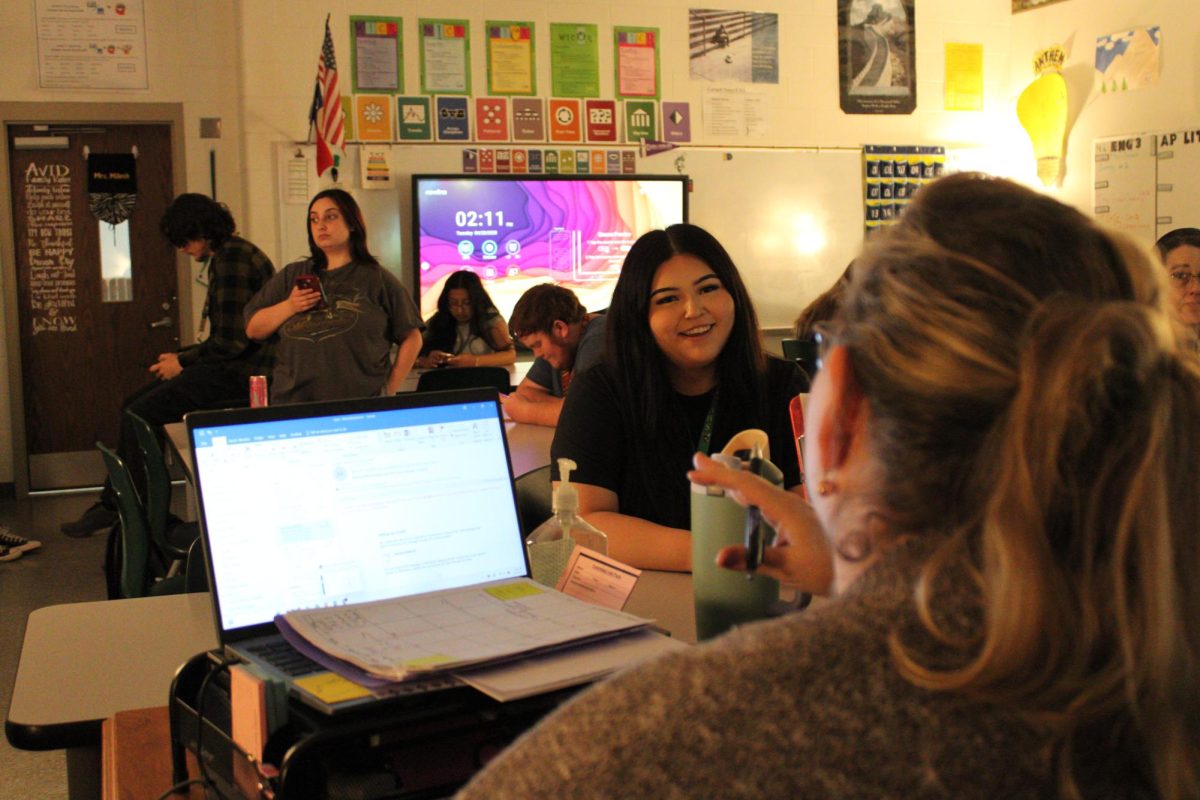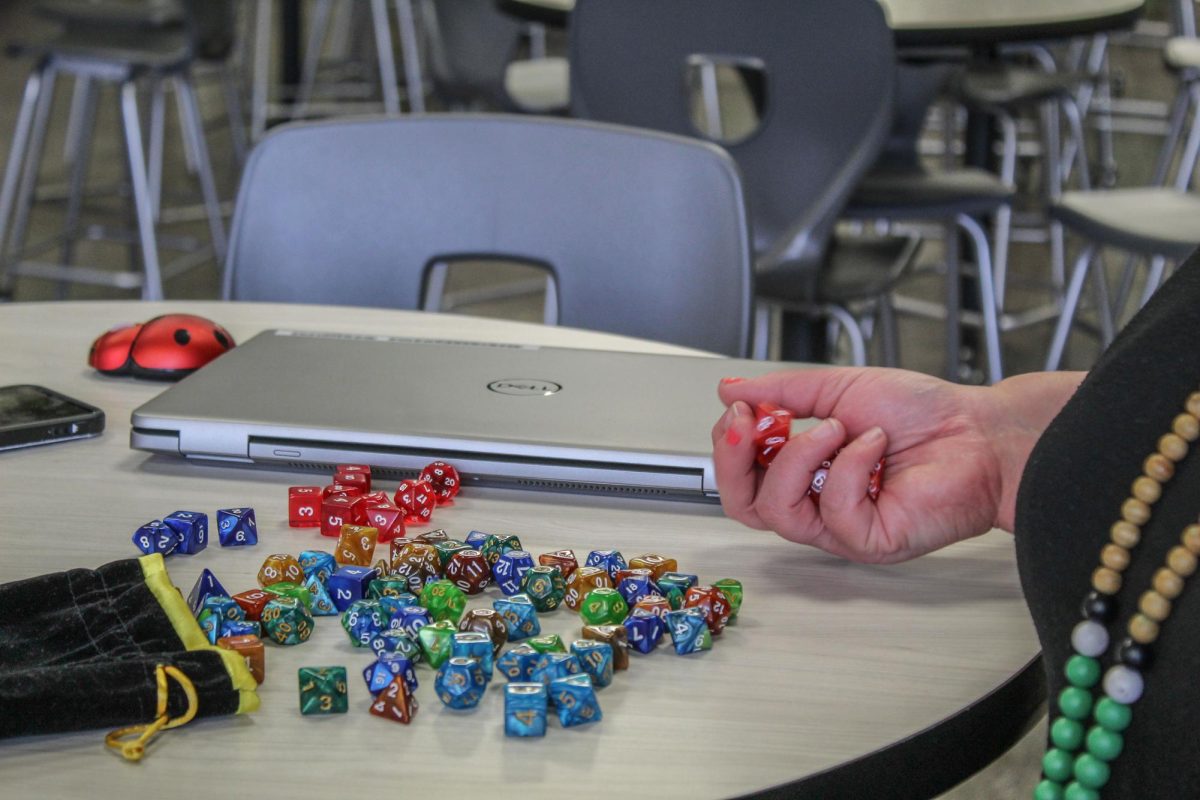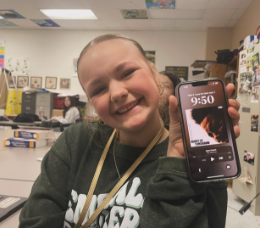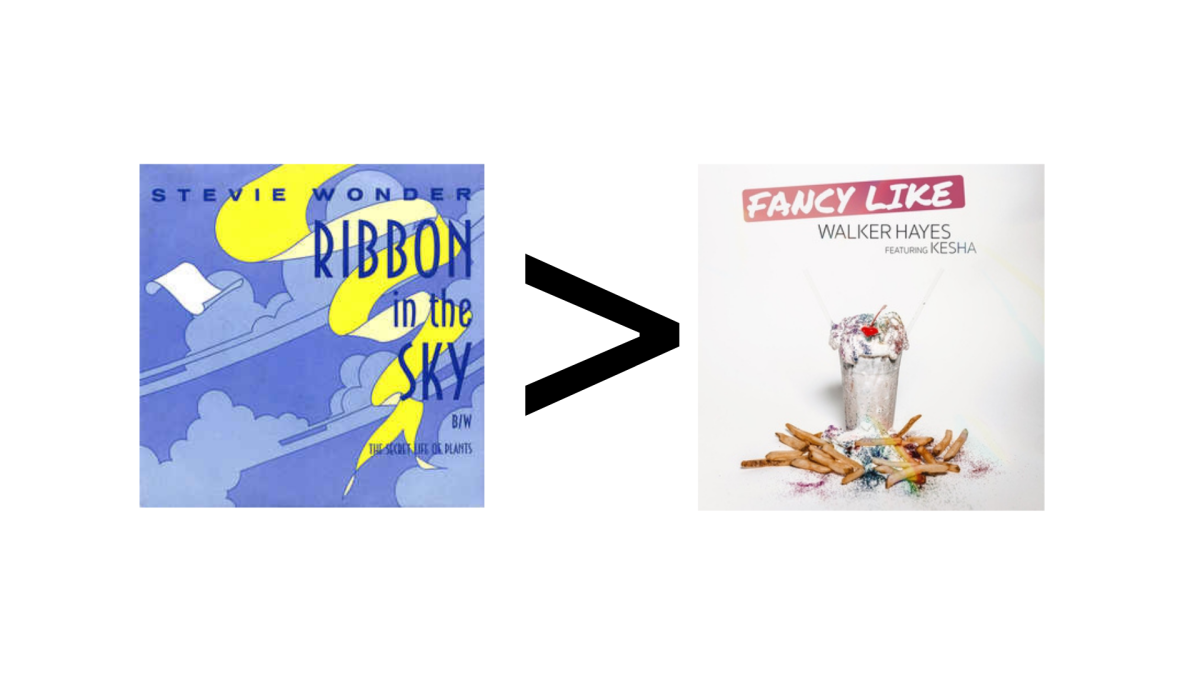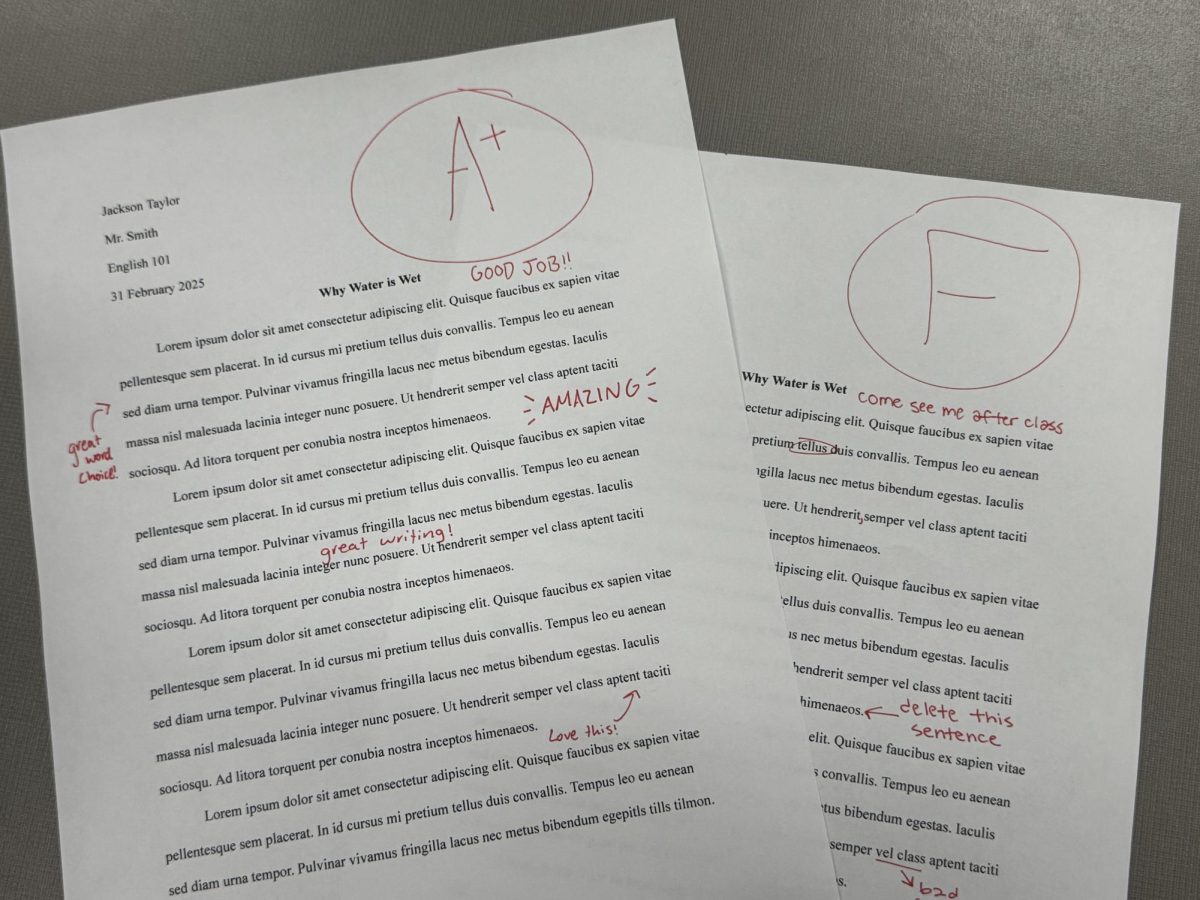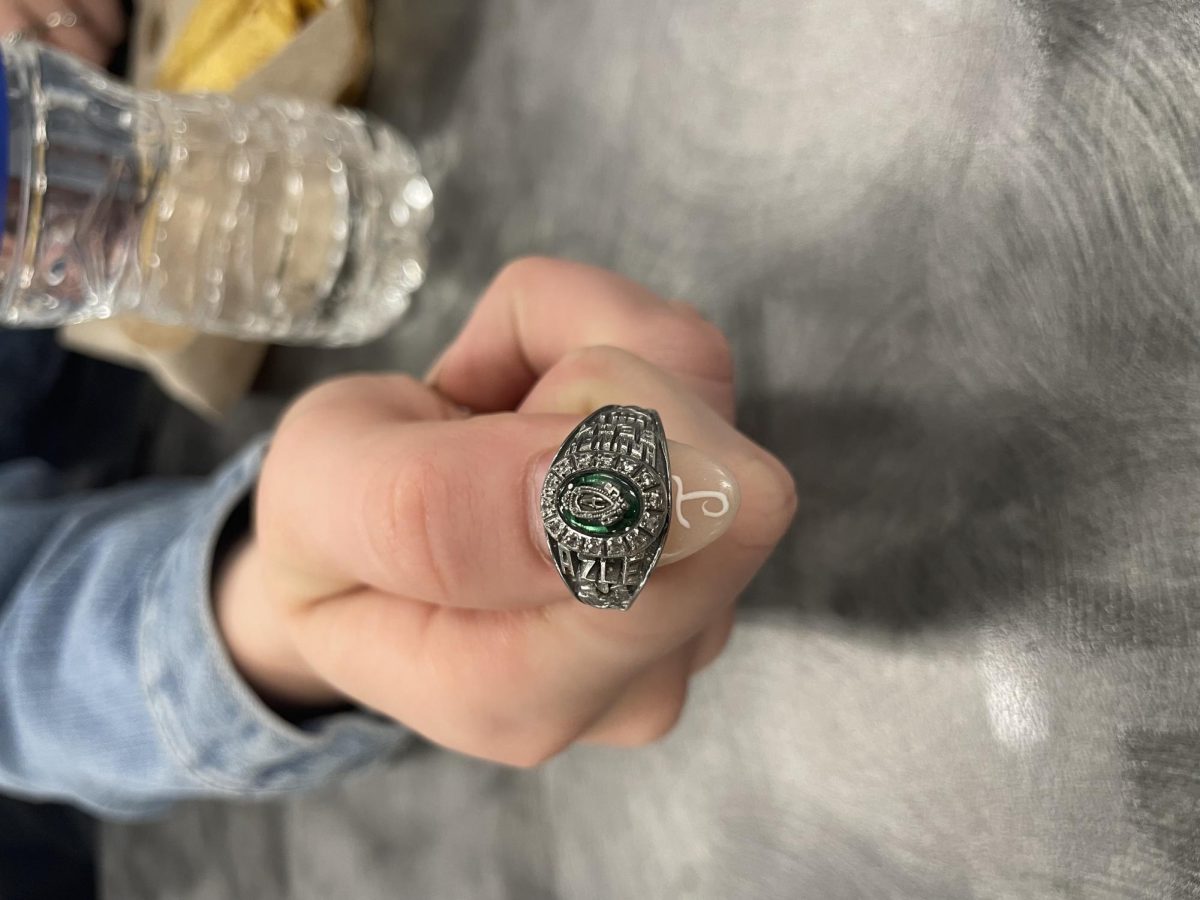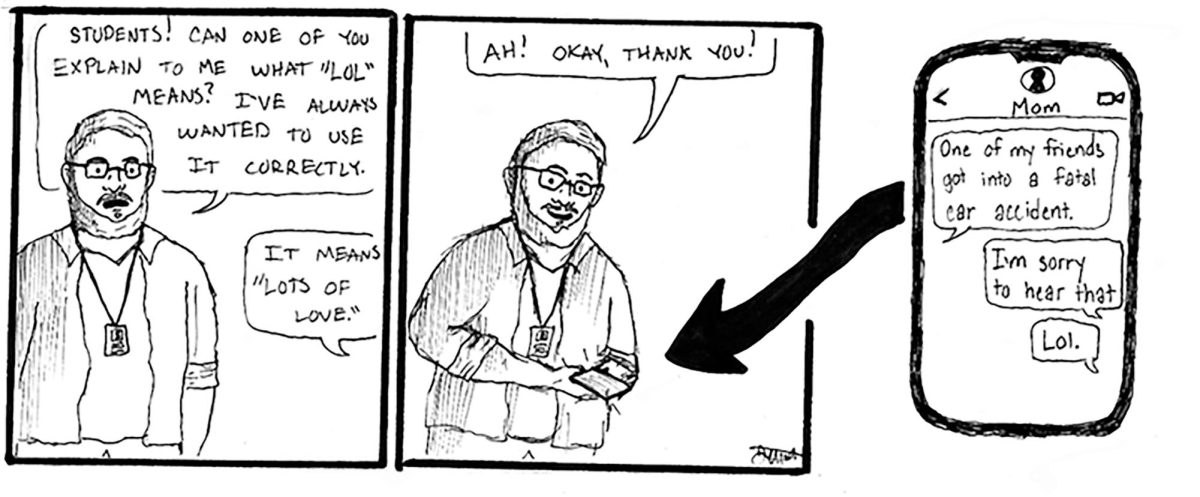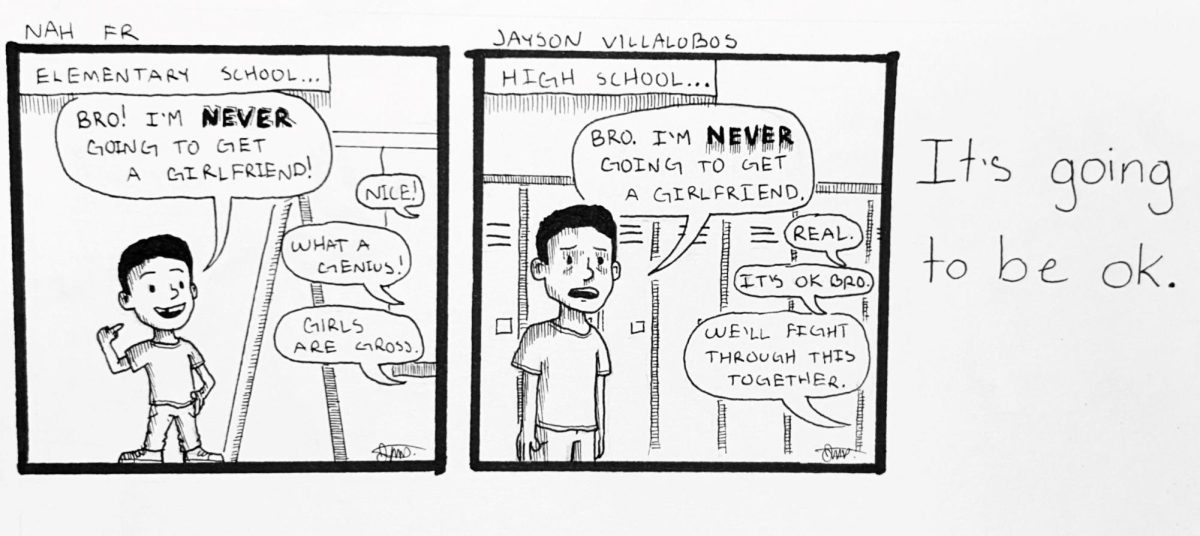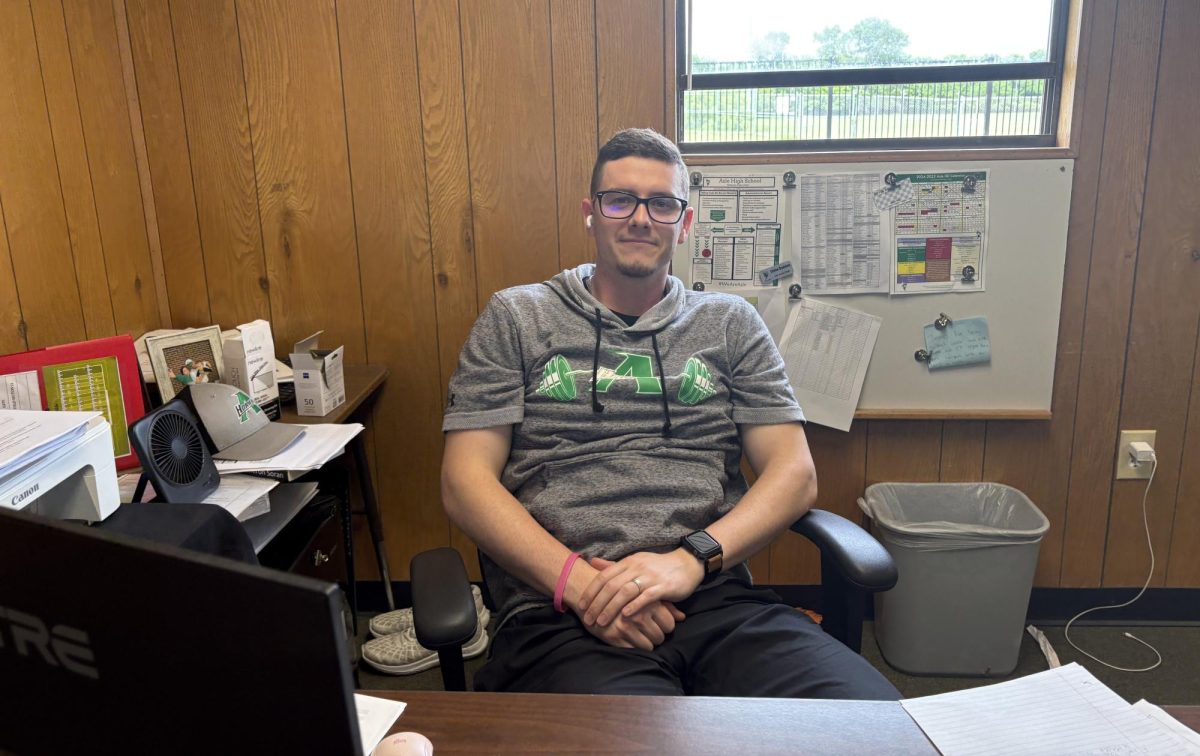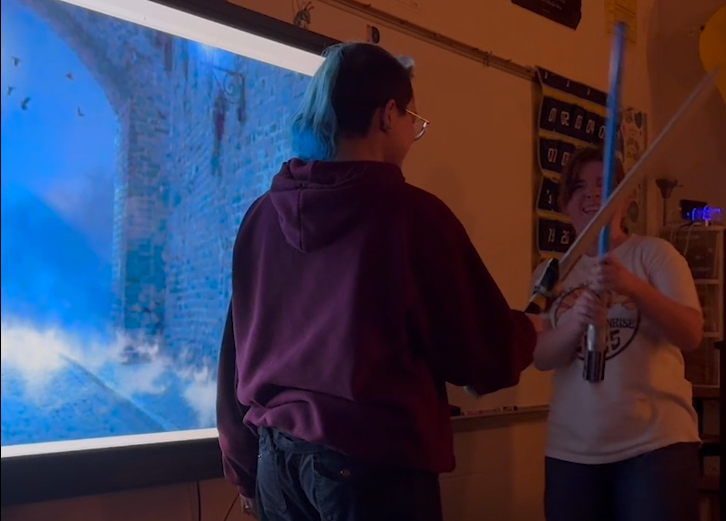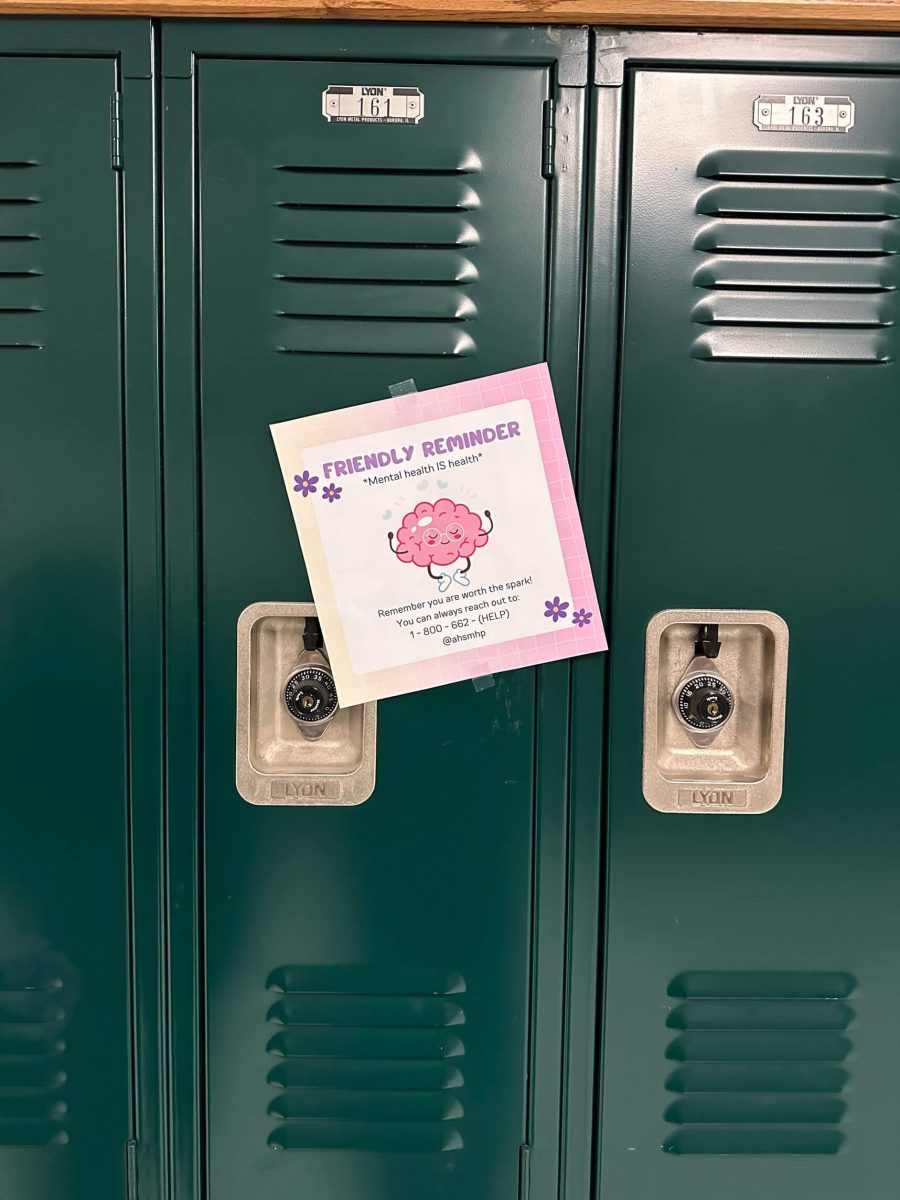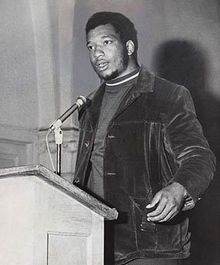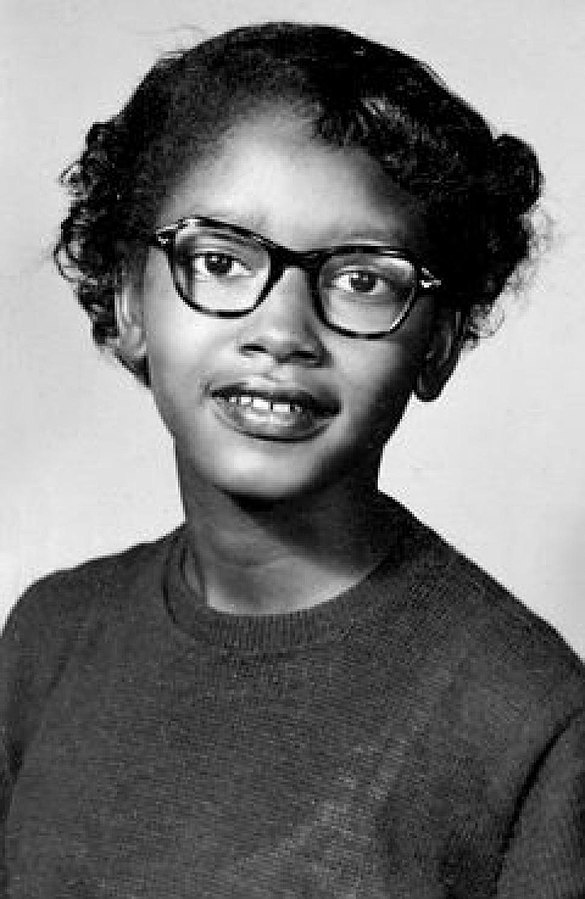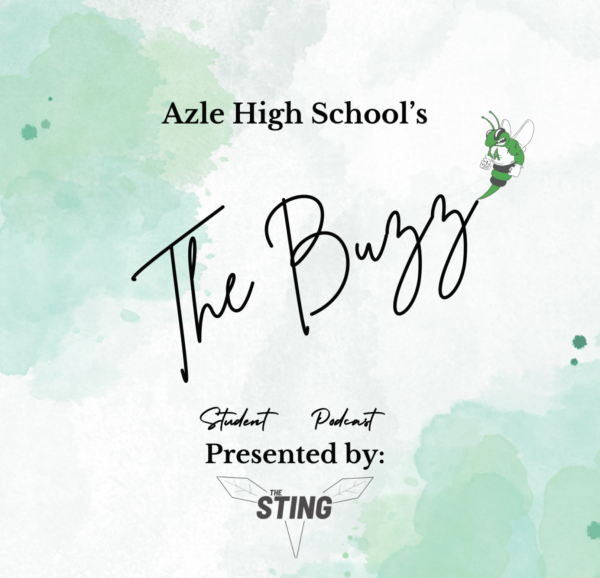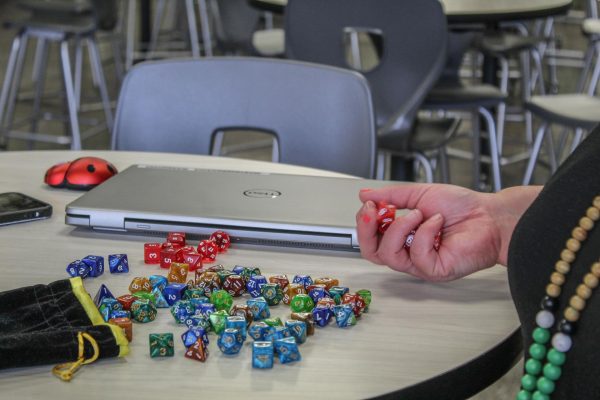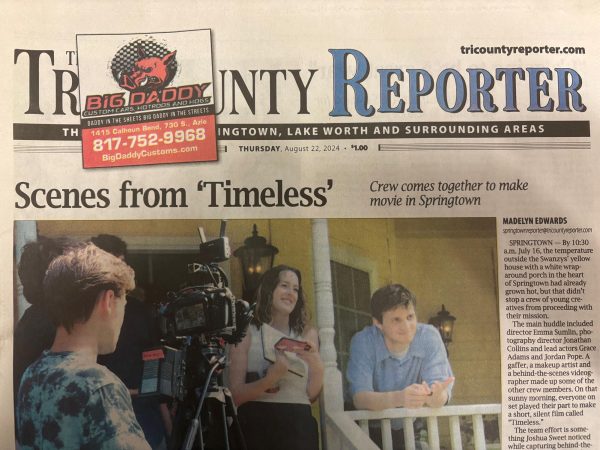Disney’s Encanto Brings Generational Trauma to the Forefront
Sophomore Daytona Gravlin watches Encanto on her phone.
Recently, Disney released one of its newest films, Encanto, which revolves around a magic spell blessed onto a family in Columbia. And while the story itself feels all too similar to any fairy tale you might have heard, the film does wonders representing a South American family and shedding light to generational trauma, all the while taking the audience on a beautiful, lyrical journey following the protagonist and her family.
I honestly believe that this movie is one of the most progressive films that Disney has recently released because of the family dynamic that we as an audience get to watch and experience as the movie progresses. After being introduced to the protagonist Mirabel and her family, it doesn’t take much time for one to realize that Alma (a.k.a Abuela) is our big antagonist of the film, and it isn’t something as simple as big purple horns or a creepy sly smile. In fact, it’s almost the opposite. She is seemingly a loving grandmother who is proud of her family and their accomplishments. However, after the first ten minutes or so, we start to see her prejudice against Mirabel for not having any special gifts, unlike the rest of her family. We even start to realize that it isn’t only Mirabel that tries to make up for her grandmother’s disappointment and be as perfect as possible. Mirabel’s sisters Luisa and Isabela have their own hidden, anxious tendencies and fears that they hide to become that perfect child their Abuela wants them to be, even with special, unique powers. Or even Mirabel’s uncle, Bruno, who was shunned, feared and hated for years for his power to see into the future, which was obviously something he couldn’t help.
Even after that fact, they choose to love and admire her all the same. This change can easily be seen as something admirable or caring at a brief glance, when, in fact, I think it is something of emotional manipulation on Abuela’s part. She has repeatedly shown that her love is conditional, and that if you do not fit her standard, you will not be seen as someone of importance to her or the family. And I absolutely love how this fault in such an admired character is portrayed on screen. We as an audience understand that it isn’t right, while the family, for at least a long duration of the film, doesn’t see enough reason to confront Abuela until the walls around them quite literally start to fall apart. It might be able to hit home with the audience, and I’d like to think that someone in a similar position, whether they find themselves to be like Mirabel, Bruno, or Abuela, could learn something and re-evaluate their values just a little.

Hi, I'm Erika! I'm a senior, and including our journalism team, I am involved with Chapters of Azle, UIL Journalism, the National Honors Society, and the...




